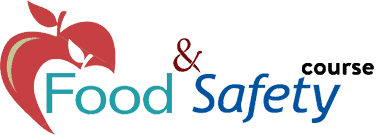Candidates enrolled in food handling and food safety courses will learn to prevent the spread of food borne illnesses. The main goal of candidates attending this course is to keep themselves and their patrons healthy and keep the facility clean and hygienic. It is important to have a good understanding of the source and causes of the majority of food poisoning. This page is dedicated to the common sources of food borne illnesses.
Bacteria may get into your food in several different ways. The following is a list of the most common sources of bacteria:
- Meat or poultry that has come into contact with intestinal bacteria during processing.
- Water that is used during growing or shipping may contain animal or human waste.
- Improper food handling, storing, receiving, or preparation techniques.
Food borne illnesses grow and spread from a variety of different environments. Common sources of food poisoning are:
- Foods prepared by someone who did not wash or wash their hands properly.
- Uncleaned or improperly sanitized cooking utensils, cutting boards, or other dish ware’s and preparing tools.
- Dairy products or food containing mayonnaise (such as coleslaw or potato salad) that have been out of the refrigerator too long
- Poor food storing temperatures (refrigeration temperature not cold enough or heating temperature not high enough)
- Raw seafood such as fish or oysters
- Raw fruits or vegetables that have not been washed or properly washed.
- Raw vegetable or fruit juices and dairy
- Under cooked meats or eggs
- Unclean water, or water from a poor or unsanitary source.
By taking a food and safety course candidates will learn simple techniques and methods to prevent food borne illnesses. Learn to keep your family, friends, coworkers and customers safe and healthy by taking a food safety course. Registration is simple and convenient and after successful completion of the course candidates will receive certification that meets provincial standards and regulations.
